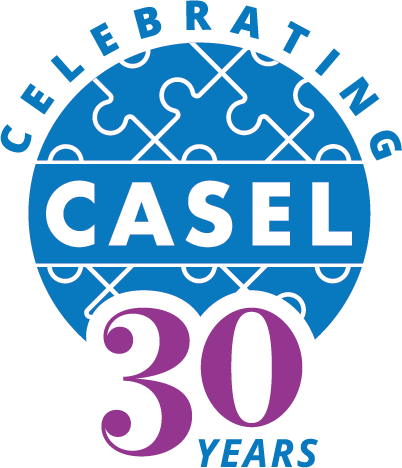The benefits of social and emotional learning (SEL) are well-researched, with evidence demonstrating that an education that promotes SEL yields positive outcomes for students, adults, and school communities.
The findings below come from hundreds of independent studies across multiple fields and sources that show SEL leads to beneficial outcomes related to: social and emotional skills, academic performance, mental wellness, healthy behaviors, school climate and safety, and lifetime outcomes.
The Benefits of SEL
Back to topSEL leads to improved academic achievement
When students have supportive relationships and opportunities to develop and practice social, emotional, and cognitive skills across many different contexts, academic learning accelerates.
- Hundreds of studies involving more than 1 million students worldwide across PreK-12 offer consistent evidence that SEL has a positive impact on students’ academic achievement.
- Students participating in SEL at school have higher levels of “school functioning,” as reflected by their grades, test scores, attendance, and homework completion.
- SEL builds social and emotional skills that increase student engagement and lead to improved academic performance.
- SEL interventions that addressed the five core competencies increased students’ academic performance by 11 percentile points, compared to students who did not participate.
- The positive impact on academics lasts long-term: Years after students participated in SEL, their academic performance was an average of 13 percentile points higher than students who didn’t participate.
SEL programs appear to have as great a long-term impact on academic growth as has been found for programs designed specifically to support academic learning.
Mahoney, Durlak, and Weissberg, 2018
Download an infographic on SEL and academic performance.
SEL contributes to healthy well-being and safe schools
While SEL does not replace the need for mental health interventions for students who need it, SEL can cultivate important “protective factors”—caring relationships, safe and supportive environments, social and emotional skills—that buffer against mental health risks.
- Participation in SEL programs is linked to decreased emotional distress, more positive attitudes about self and others, and fewer externalizing behaviors and discipline problems.
- SEL enhances young people’s coping skills, resiliency, and emotion identification, which can help reduce symptoms of depression and anxiety in the short term.
- Students participating in SEL report an increased sense of safety and support, better relationships with teachers, and stronger feelings of belonging and inclusiveness in schools.
- SEL contributes to reductions in bullying and aggression.
SEL develops skills that promote future readiness
Students who engage in SEL programs see consistent improvements in social and emotional skills, and stronger social and emotional skills contribute to positive lifetime outcomes up to 18 years later. Students with stronger social and emotional skills are more likely to reach milestones including:
SEL is a wise financial investment
Analysis of six evidence-based programs has demonstrated that the benefits significantly outweigh the costs, estimating for every dollar invested in SEL there is an $11 return.
SEL is effective across cultural contexts
SEL is consistently effective across demographic groups; socioeconomic and cultural backgrounds; and urban, suburban, and rural communities both inside and outside the United States.
But SEL is not ‘one-size-fits-all’: SEL approaches are most effective when the intervention is designed with a specific context or culture in mind.
SEL benefits adults, too
A growing body of evidence demonstrates that focusing on educator social and emotional competence can also improve teacher well-being.
- Educators with strong social and emotional competence report higher levels of job satisfaction and less burnout.
- Focusing on SEL can help educators build and maintain stronger relationships with students and manage classrooms
- Teachers who teach SEL to students report feeling more effective at their jobs and lower levels of job-related anxiety.
